Jinja Template If Condition
Jinja Template If Condition - Multiple conditions for if statement in jinja templates. Web one of the essential control structures in jinja is the if statement, which allows you to conditionally render templates based on certain conditions. Web instead of dealing with if.else conditionals in the flask code, you can directly embed them into the jinja2 templates. Web in jinja, the if else statement is a conditional construct that allows you to execute different blocks of code based on specific conditions. Their syntax resembles python's if statement. It's similar to the if else statement in. Web in jinja templating, if, elif, and else statements function similarly to their counterparts in traditional programming languages. Content associated with an if statement is enclosed in blocks starting. For example, to find out if a variable is defined, you can do nameisdefined , which will then. In this article, we'll delve. {% for mess in get_flashed_messages() %} {% if mess == your. I got stuck in my coding. Asked sep 29, 2012 at 18:05. Web in jinja, the if else statement is a conditional construct that allows you to execute different blocks of code based on specific conditions. Web instead of dealing with if.else conditionals in the flask code, you can. Web the conditions in jinja templates can be used for any purpose the same way as in python — it can not only check the truthiness of a variable but also compare values. For example, to find out if a variable is defined, you can do nameisdefined , which will then. Web in jinja, the if else statement is a. Web you can dynamically change the result of your template based on input data using jinja's conditionals: With the default syntax, control structures appear inside {%. Web if allows you to add a condition to template. Web use for loops and conditional statements with jinja. In this article, we will delve. Multiple conditions for if statement in jinja templates. Web {% if condition %} statements are used in templates to control the content that is returned from flask routes. In this article, we will delve. Special placeholders in the template allow writing code similar to python syntax. Web templating (jinja2) ansible uses jinja2 templating to enable dynamic expressions and access to. They enable you to control the flow of your. Asked 6 years, 5 months ago. In this article, we will delve. Web in jinja, the if else statement is a conditional construct that allows you to execute different blocks of code based on specific conditions. Web if allows you to add a condition to template. Assuming your trouble is with the syntax getting the row['value'], concatenate the strings rather than trying to nest the {{ }} s: Web 5,439 7 21 49. In this article, we'll delve. In this article, we will delve. {{ 'value=' + row['value'] if. Web one of the essential features of jinja is its ability to handle conditional statements, which enable developers to create dynamic and flexible templates. Web jinja2 implements one type of conditional statement, the if statement. Web if allows you to add a condition to template. In this article, we will delve. Compiles down to the optimal python code just in. Conditionals in jinja2 can be used in a few different ways. Powerful automatic html escaping system for xss prevention. Web templating (jinja2) ansible uses jinja2 templating to enable dynamic expressions and access to variables and facts. Modified 1 year, 8 months ago. Content associated with an if statement is enclosed in blocks starting. Their syntax resembles python's if statement. Web {% if condition %} statements are used in templates to control the content that is returned from flask routes. Asked 6 years, 5 months ago. Web use for loops and conditional statements with jinja. Web in jinja, the if else statement is a conditional construct that allows you to execute different blocks of. Web you can dynamically change the result of your template based on input data using jinja's conditionals: Web use for loops and conditional statements with jinja. Then the template is passed data. For example, you can use if to add parts of template depending on the presence of variables in data dictionary. Modified 1 year, 8 months ago. For example, to find out if a variable is defined, you can do nameisdefined , which will then. In this article, we will delve. It's similar to the if else statement in. Powerful automatic html escaping system for xss prevention. Conditionals in jinja2 can be used in a few different ways. Web below code syntax for using 'for loop' and 'if statements' in python language together with jinja in html file: Web instead of dealing with if.else conditionals in the flask code, you can directly embed them into the jinja2 templates. Web one of the essential control structures in jinja is the if statement, which allows you to conditionally render templates based on certain conditions. Asked sep 29, 2012 at 18:05. Web jinja2 implements one type of conditional statement, the if statement. Web use for loops and conditional statements with jinja. Their syntax resembles python's if statement. In this article, we'll delve. Web 5,439 7 21 49. Web in jinja templating, if, elif, and else statements function similarly to their counterparts in traditional programming languages. Compiles down to the optimal python code just in time.
Learning Django Working with Jinja template engine in Django and
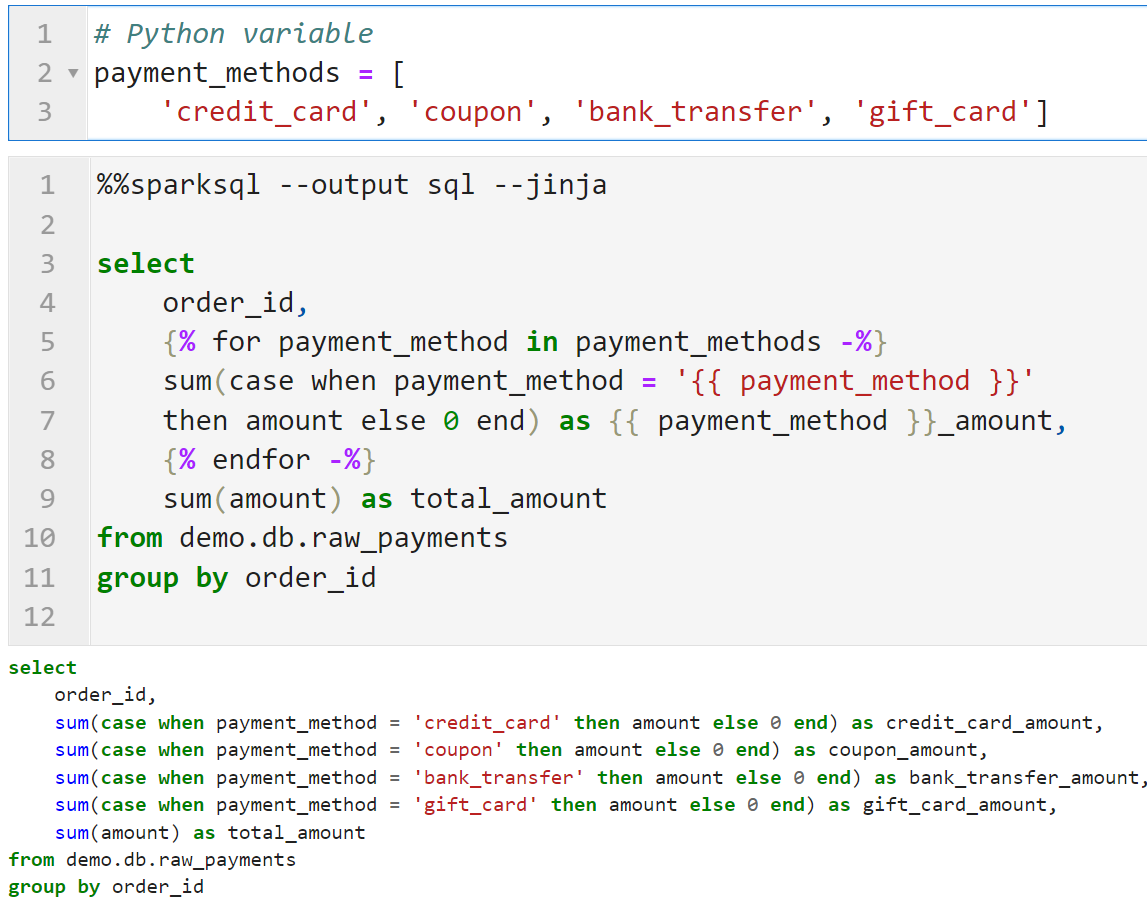
Jinja/DBT SQL Templating in JupyterLab/VSCode by JeanClaude Cote
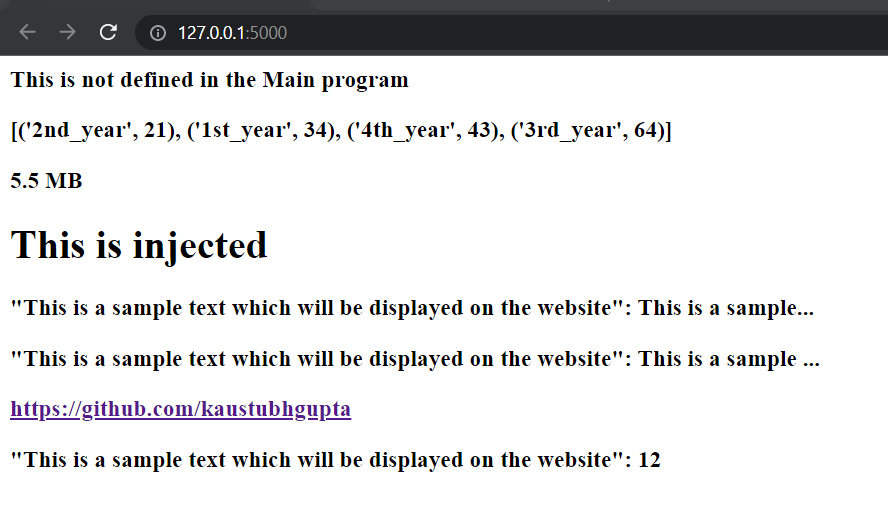
The Ultimate Guide to Master Jinja Template Analytics Vidhya

Ultimate dbt data build tool and jinja command cheatsheets Datacoves
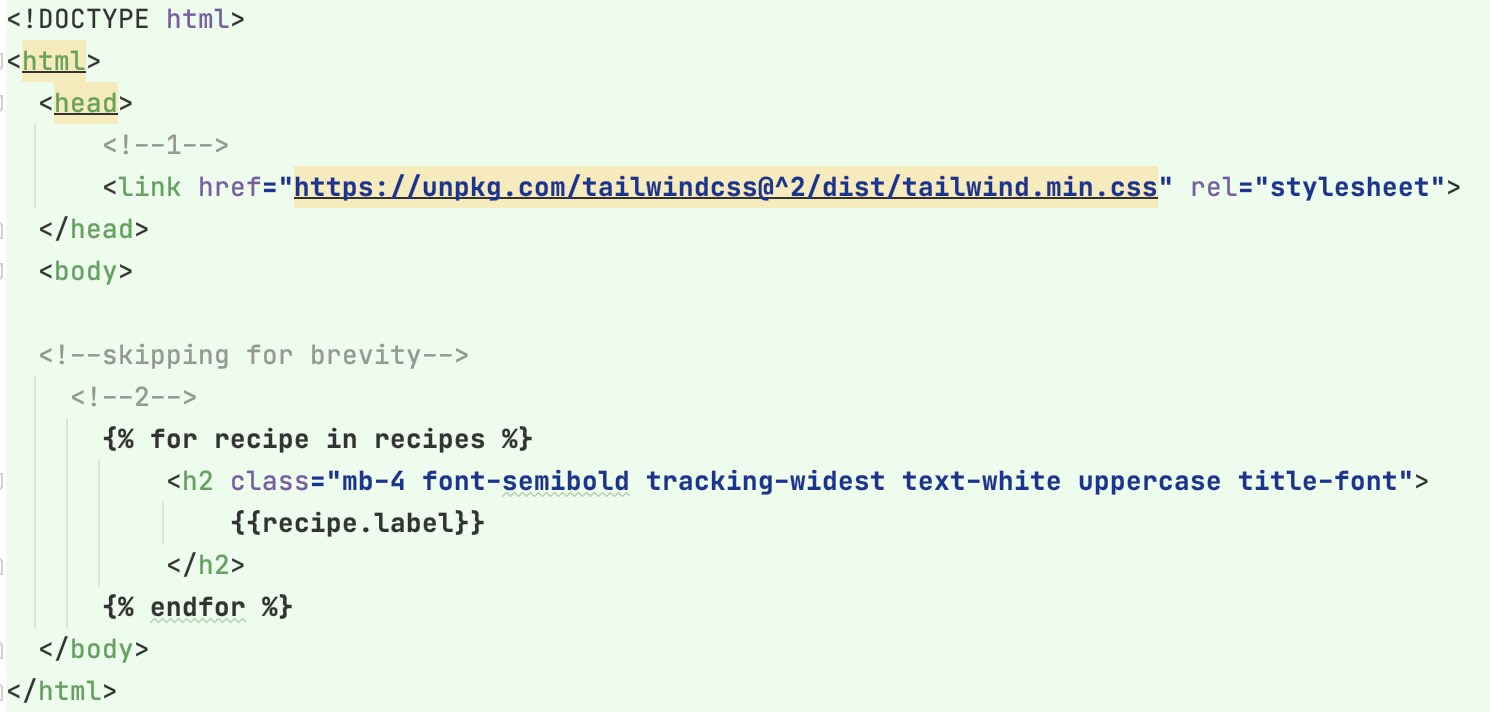
The Ultimate FastAPI Tutorial Part 6 Serving HTML with Jinja Templates
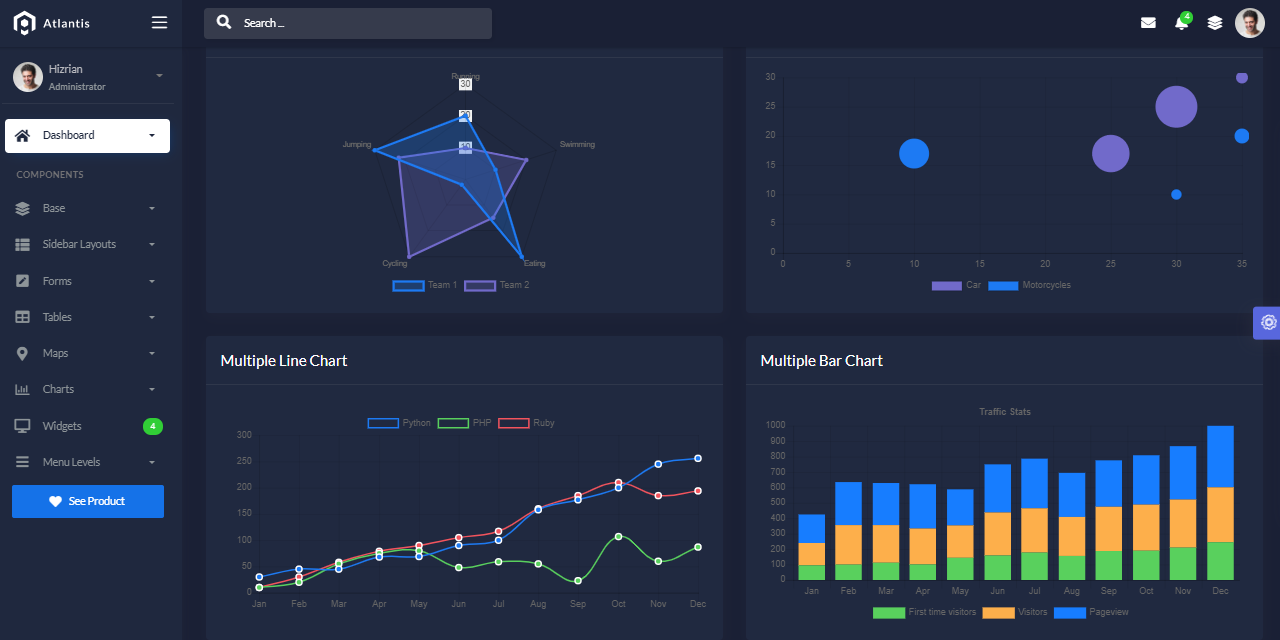
Jinja Template Short Introduction and FREE Samples Codementor
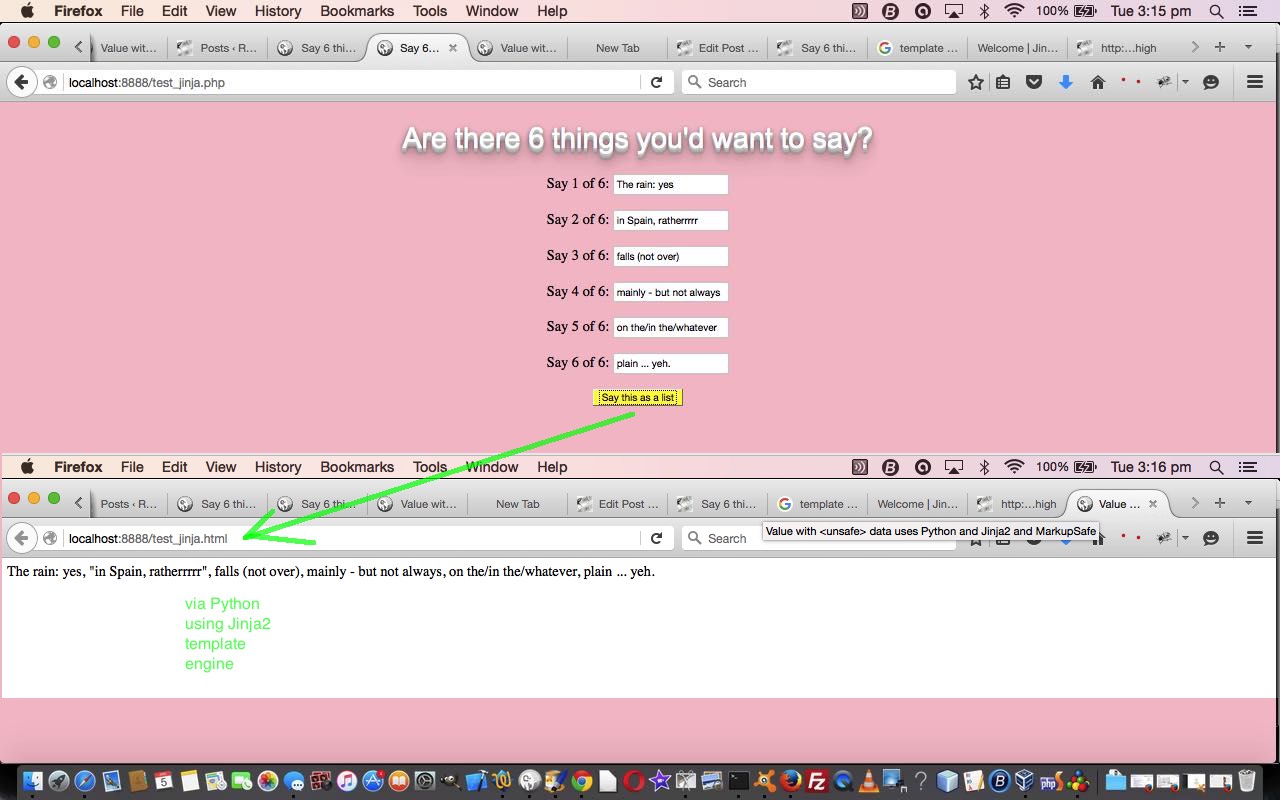
Jinja Template Engine Three Ps Primer Tutorial Robert James Metcalfe Blog
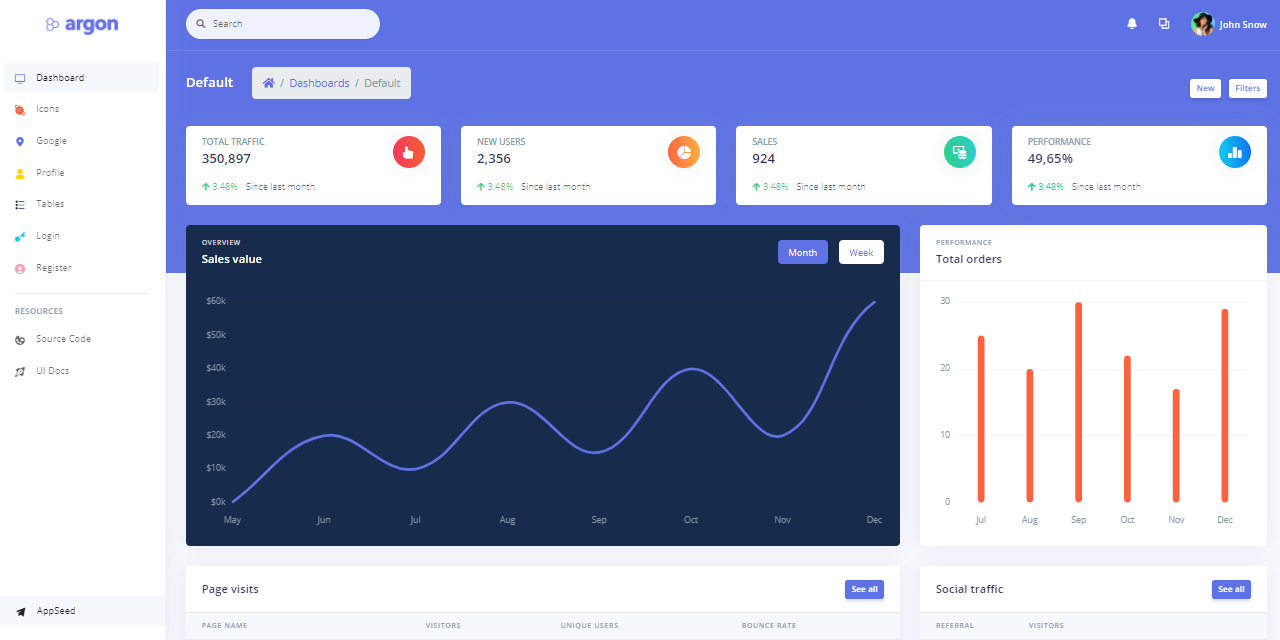
GitHub appgenerator/jinjatemplate Jinja Template Free

Session 21 Ansible Jinja Template Using Jinja2 Template in

Python Jinja Working with conditional inside Jinja template engine
Web If Allows You To Add A Condition To Template.
Web One Of The Essential Features Of Jinja Is Its Ability To Handle Conditional Statements, Which Enable Developers To Create Dynamic And Flexible Templates.
Modified 1 Year, 8 Months Ago.
Web The Conditions In Jinja Templates Can Be Used For Any Purpose The Same Way As In Python — It Can Not Only Check The Truthiness Of A Variable But Also Compare Values.
Related Post: